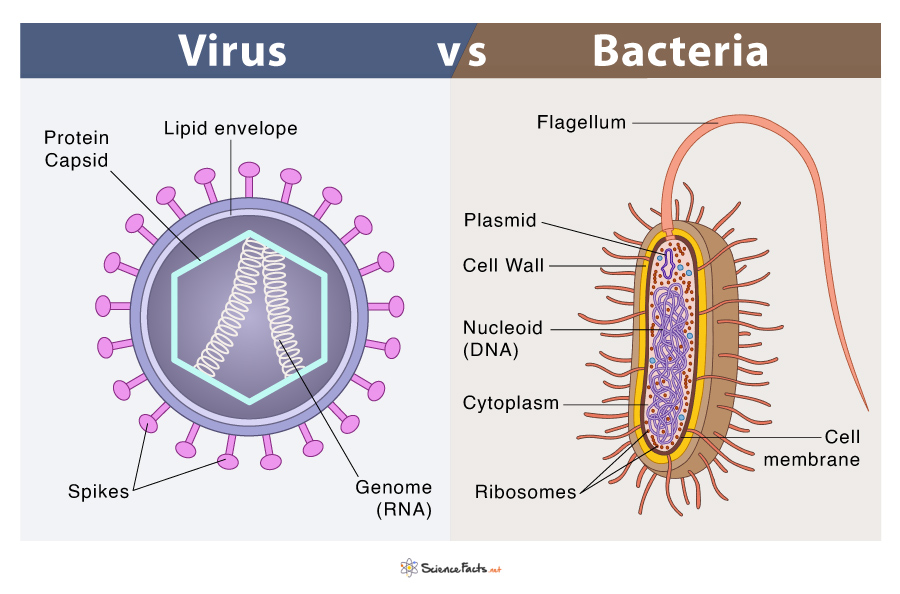Viruses are an assembly of different molecules containing genetic material. Most biologists do not consider them living, as they need to enter a host cell to survive and reproduce. However, they are also quite selective about their hosts. Bacteria are the smallest and simplest microbes with a free-floating genetic material. They are abundant in soil, inhabiting plant root systems to help them in nitrogen-fixation. Also, within the human body, they inhabit the digestive system to aid in energy metabolism and digestion.
Compare and Contrast
What Is the Difference between Virus and Bacteria
What Do Viruses and Bacteria Have in Common
Although vastly different from each other, both bacteria and viruses share some common features. They are given below:
No membrane-bound organelles.MicroscopicCauses diseaseCarry genetic materialCan spread through coughing, sneezing, or coming into contact with contaminated surfaces, animals, items, or people.Can be treated with vaccines
